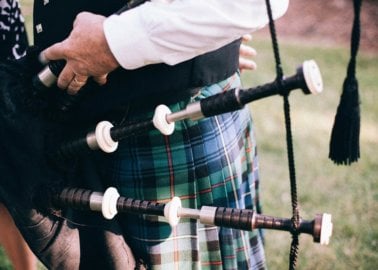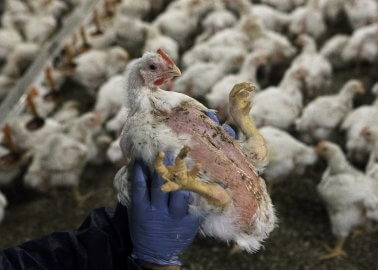Want to Avoid Highly Processed Foods? Start by Going Vegan
We all want to live healthier, longer lives. Still, many of us feel confused about the best food choices thanks to unscrupulous influencers pushing fads, fast-food advertising, and scaremongering studies.
For example, do you know all the processing that goes into turning corn, also known as maise – one of the biggest food crops on the planet – into fizzy drinks, corn chips, and organic skinless chicken breasts?
Wait, Chicken Breast Is a Processed Food?
As Dr Neil Barnard from the Physicians Committee for Responsible Medicine (PCRM) points out in the video below, all of the above foods start with corn and require processing. But, where corn chips are typically mashed into corn meal and cooked in oil with added salt, and fizzy drinks are flavoured with high-fructose corn syrup and carbonated water, it takes a lot more processing to turn corn into a living, feeling animal, and that animal into a piece of meat.
It starts by feeding the chicken a mix of corn, soy, bakery meal, and antibiotics (a far cry from their natural diet of insects, seeds, fruits, and plants), which the chicken breaks down in their gizzard via enzymes, removing the fibre, and adding saturated fats.
Not Just Unhealthy for Us, Horrible for Animals, Too
Chickens – and other animals raised for their flesh – are each unique individuals with distinct personalities, but the meat industry treats them like “meat machines.” Every year in the UK, chickens are fed the bare minimum nutrients (and a cocktail of drugs) needed to grow them to slaughter weight rapidly.
Eighty-five percent of animals bred for meat in the UK (over one billion animals annually) are confined in the dark, filthy, overcrowded sheds – ideal breeding grounds for viruses like swine and avian influenza.
At just a fraction of the animals’ natural lives (6 weeks for chickens bred for their flesh), frightened animals are suddenly rounded up and packed onto trucks for the long journeys to the slaughterhouse, where they’re hoisted upside down and have their throats slit.
Milk: As Unhealthy as It Is Cruel
Like all mammals, including humans, a female cow only produces milk if she has recently given birth and only to feed her baby. But, like animals bred and raised for their flesh, dairy producers treat cows as little more than milk machines.
A cow is fed corn to produce dairy milk, which is then digested and combined with a laundry list of chemicals and hormones inside the animal’s body to become a mother’s milk – a process designed to turn a 65-pound calf into a 700-pound cow – fast.
As well as being linked to skin ailments like acne, eczema, and psoriasis, dairy is also linked to a higher risk of breast and prostate cancers. One recent study found that men who consumed about one and three-quarter cups of dairy milk per day faced a 25% increased risk of prostate cancer compared to men who consumed half a cup of milk per week and an even higher risk rate than those who consumed no dairy at all. If you’re unsure what “insulin-like growth factor” is, watch the video below to find out what’s in your glass of milk:
What About Highly Processed Vegan Foods?
Fast food is fast food, whether it’s vegan or not. The best way to get all the health benefits from your food, is to focus on a whole animal-free diet rich in fruits, vegetables, pulses, legumes, fungi, and grains.
While the odd vegan burger or dairy-free cheese platter consumed within a balanced, produce-rich diet won’t kill anyone, the same can’t be said for beef burgers and dairy cheeses, which cost gentle animals their lives while they’re still just babies.
It’s Easy to Upgrade Your Health and Save Animals
Going vegan is the most powerful thing you can do for animals, your health, and the environment. Not only have animal-free diets been shown to help protect from many cancers, heart disease and diabetes, but they also have the lowest environmental impact. A major Oxford University study found that a vegan diet has just 30% of the environmental impact of a high-meat diet.
Order your free vegan starter kit to enjoy delicious animal-free meals today. In just one year, you will have saved the lives of some 360 animals, around 10,800 square feet of land, 7,200 pounds of CO2, and 1,499,023 litres of water. Plus, you’ll be fighting fit to enjoy the better world you’ve helped to create.




